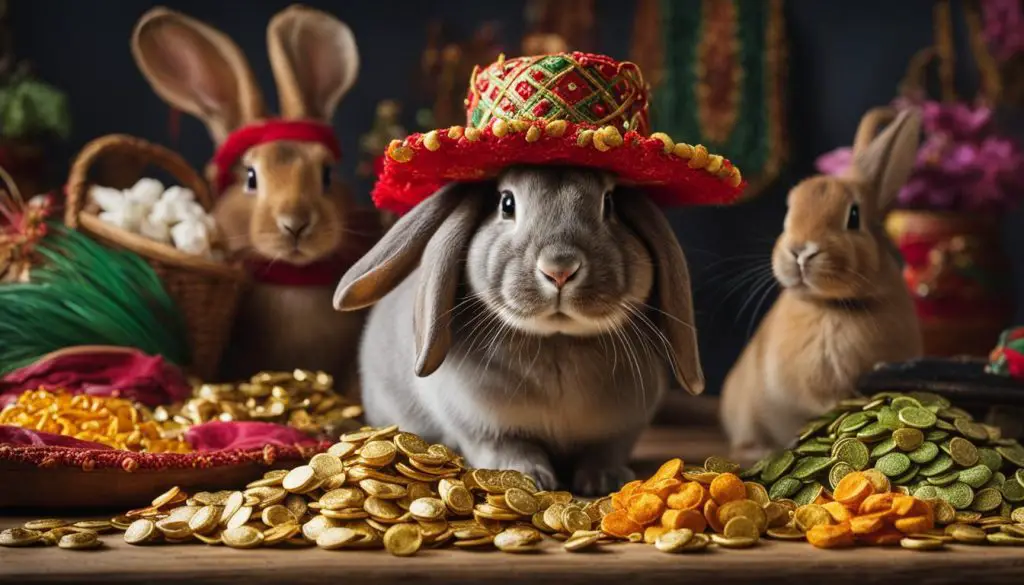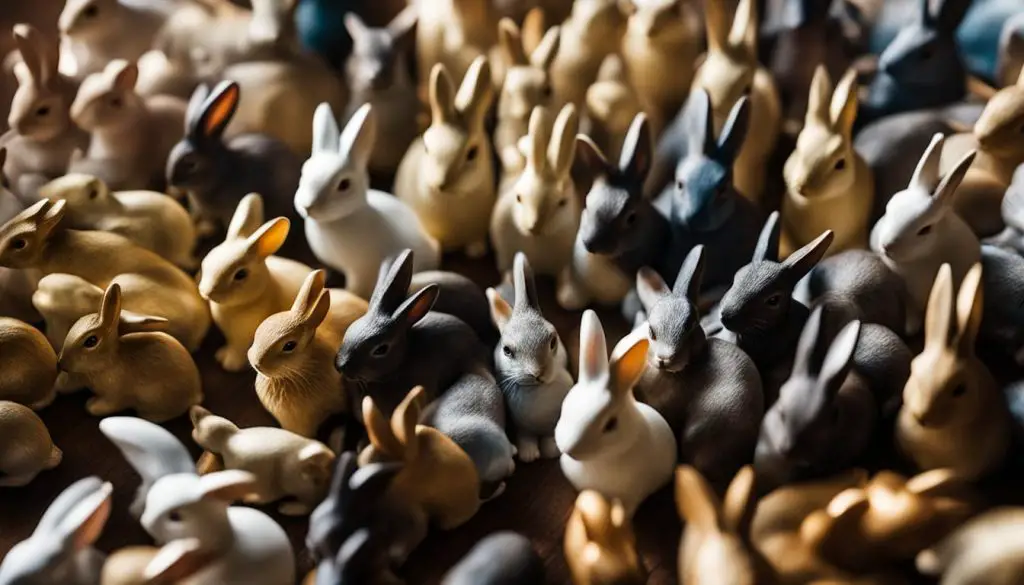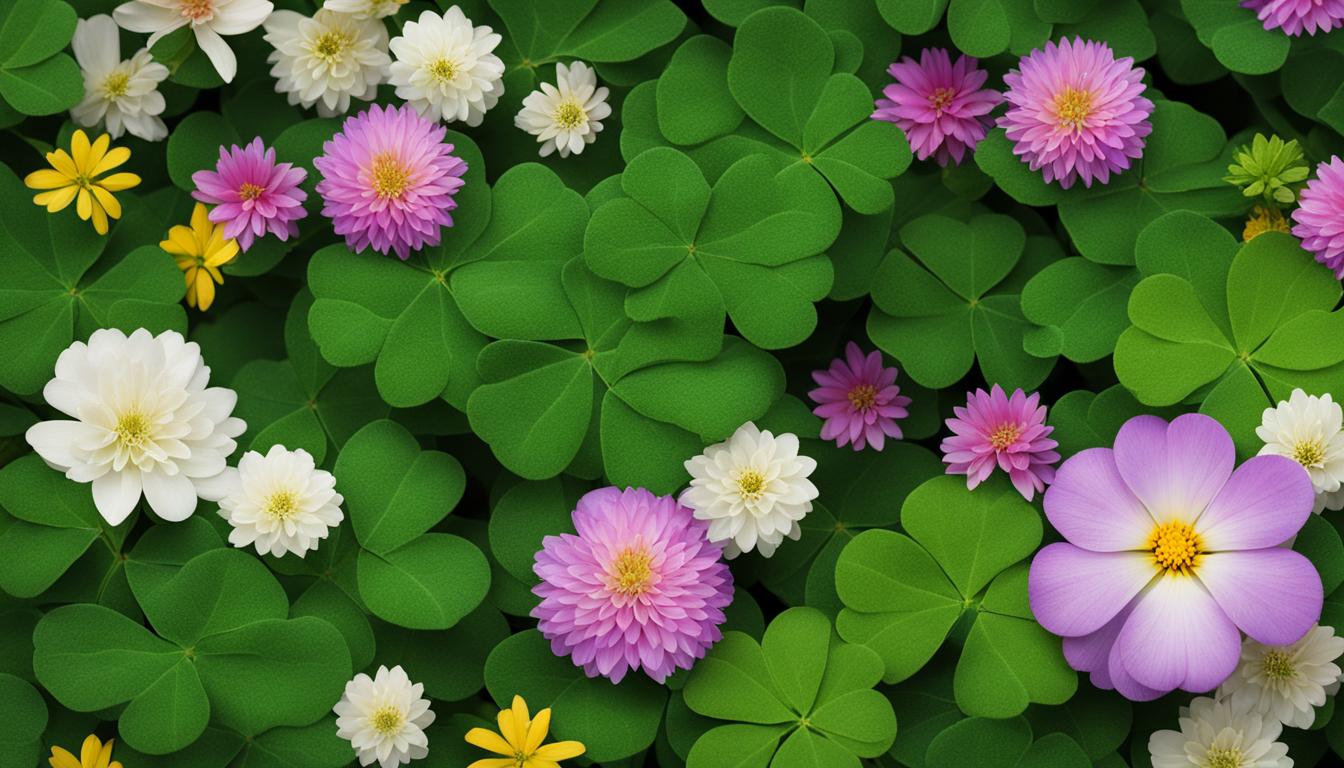Are you looking for a little extra luck in your life? Well, you’re in luck! There’s a long-standing tradition that might just do the trick. It involves saying a special phrase on the first day of the month, and it’s believed to bring good luck for the rest of that month.
This tradition has been passed down through generations in Britain and North America, and while its exact origin is unknown, it has been recorded as early as 1909 in a publication called “Notes and Queries.” The phrase must be said aloud and be the first words spoken in the month. It’s believed to have connections to ancient beliefs in swearing to avoid evil and the fertility symbolism of rabbits.
So, what exactly is this magical phrase? It’s “rabbit rabbit rabbit” or “white rabbits.” Saying it on the first day of the month is said to ensure good luck for the entire month. This superstition is especially well-known in northern New England in the United States.
Contents
- 1 Origins and History of the Tradition
- 2 Variants of the Tradition
- 3 Association of Rabbits with Good Luck
- 4 Saying “Hare Hare” and Other Variations
- 5 The Power of Saying “Rabbit Rabbit”
- 6 Conclusion
- 7 FAQ
- 7.1 What is the superstition of saying “rabbit rabbit rabbit” on the first day of the month?
- 7.2 When did this superstition originate?
- 7.3 Are there variations of this superstition?
- 7.4 What is the connection between rabbits and good luck?
- 7.5 What is the significance of saying “hare hare” instead of “rabbit rabbit”?
- 7.6 Is there any scientific evidence behind the luck brought by saying “rabbit rabbit”?
- 7.7 Should I participate in this tradition?
- 8 Source Links
Key Takeaways:
- Saying “rabbit rabbit rabbit” or “white rabbits” on the first day of the month is a tradition believed to bring good luck for the rest of that month.
- The exact origin of this superstition is unknown, but it has been recorded as early as 1909.
- The phrase must be said aloud and be the first words spoken in the month.
- This tradition is believed to have connections to ancient beliefs in swearing to avoid evil and the fertility symbolism of rabbits.
- Saying “rabbit rabbit” is especially well-known in northern New England in the United States.
Origins and History of the Tradition
The exact origins of saying “rabbit rabbit rabbit” on the first day of the month are unclear. However, it was mentioned in a 1909 publication that children were already following this tradition. One theory suggests that the superstition may have emerged from the belief in swearing as a means of avoiding evil. Another theory links it to seasonal fertility symbolism, as rabbits are known for their fertility. The tradition became more widely known after appearing in Lewis Carroll’s “Alice in Wonderland” book in 1865. In the United States, President Theodore Roosevelt was known for saying “rabbit rabbit” every month, and the tradition gained popularity through cultural references, including Nickelodeon’s “Rabbit Rabbit Day” in the 1990s.
Throughout history, people have been fascinated by the idea of luck and superstition. The tradition of saying “rabbit rabbit rabbit” on the first day of the month is a reflection of this fascination. While the exact origin of the superstition is unknown, its presence can be traced back to early publications and folklore. Children were already following the tradition in 1909, and it gained further popularity through literary works like “Alice in Wonderland.” The belief in luck and the power of words to ward off evil likely contributed to the emergence of this tradition.
President Theodore Roosevelt’s monthly utterance of “rabbit rabbit” further solidified the tradition’s place in popular culture. The superstition became a topic of discussion and gained momentum through various media references, including television shows like Nickelodeon’s “Rabbit Rabbit Day.” The enduring nature of this tradition demonstrates our innate desire for good luck and positive outcomes in our lives. While there is no scientific evidence to support the belief that saying “rabbit rabbit rabbit” brings luck, many individuals continue to participate in this charming ritual as a way to start each month with hope and optimism.
Variants of the Tradition
Like most folklore, there are variations of the superstition surrounding saying “rabbit rabbit” on the first day of the month for good luck. While the most common variation is saying “rabbit rabbit rabbit,” some people say it three times or substitute it with “white rabbit.” These variations add an element of personalization to the tradition and allow individuals to engage with the superstition in a way that resonates with them.
Specific variations of the saying have been recorded in different regions and time periods. For example, in some cultures, people say “bunny bunny” instead of “rabbit rabbit.” Others may choose to say “pink elephant” or use other whimsical phrases. These variations reflect the diversity and creativity of human traditions and highlight the importance of individual interpretation and expression when it comes to superstitions.
While the variations in the exact phrasing may differ, the purpose of these variations remains the same – to ensure good luck for the rest of the month. Whether you choose to say “rabbit rabbit rabbit,” “rabbit three times,” or any other variation, the intention behind the words is to invite positive energy and fortune into your life. Ultimately, the choice of which variation to use is a personal one, allowing you to embrace the tradition in a way that feels most authentic to you.
To further explore the variations of this superstition, let’s take a look at a table that showcases the different phrasings people use:
| Variation | Meaning |
|---|---|
| “Rabbit rabbit rabbit” | The traditional version, said three times for good luck. |
| “Rabbit three times” | A concise version, emphasizing the number three for luck. |
| “White rabbit” | Using an alternative phrase while still invoking the symbolism of rabbits. |
| “Bunny bunny” | A playful variation that adds a touch of lightheartedness to the tradition. |
| “Pink elephant” | An imaginative adaptation that combines animals and color symbolism for luck. |
Remember, regardless of the specific variation you choose, the intention is to set a positive tone for the month ahead and embrace the possibility of good luck in your life.

Association of Rabbits with Good Luck
Rabbits have long been associated with good luck in various cultures. The practice of carrying a rabbit’s foot as a good luck charm is well-known. In African-American folk spirituality, it was believed that rabbits’ feet would increase fertility. This association may stem from the belief that rabbits could communicate with spirits since they burrow underground. Additionally, rabbits’ reputation for their fertility and quickness in problem-solving might contribute to their symbolism of luck and prosperity.
To understand the superstition of carrying a rabbit’s foot for luck, we need to delve into its symbolic significance. Rabbits are often seen as symbols of abundance, fertility, and positive outcomes. Many cultures throughout history have associated rabbits with good fortune and prosperity. Their ability to reproduce quickly and successfully navigate their environment has made them a symbol of luck and abundance.
“The rabbit, of course, is well-known as a sexual symbol of fertility. In various cultures, it is believed to be a sign of luck and fertility, as well as a good omen representing a fruitful future.”
Furthermore, rabbits are believed to have a connection to the spiritual realm due to their burrowing habits. In some traditions, it is believed that rabbits can communicate with spirits or serve as messengers between realms. This belief adds an additional layer of mysticism to the association between rabbits and good luck.
| Superstition | Origin |
|---|---|
| Carrying a rabbit’s foot for luck | African-American folk spirituality |
| Symbolism of rabbits communicating with spirits | Various cultural beliefs |
Saying “Hare Hare” and Other Variations
While the most common variation of the tradition is saying “rabbit rabbit rabbit” on the first day of the month, some people use alternative phrases like “hare hare” to bring luck into their lives. Although rabbits and hares are different animals, the words are often used interchangeably in this context. While rabbits are found throughout North America, hares are known for their larger size and longer ears. Both animals have long been associated with luck and fertility in various cultures.
The origin of the phrase “hare hare” as a variation is not clearly explained, but it likely emerged alongside the more well-known “rabbit rabbit” saying. The word “rabbit” originated from the French word for rabbit, while the word “hare” has Germanic roots. Despite the slight linguistic differences, both phrases are believed to bring good luck when said on the first day of the month.
To better understand the difference between rabbits and hares, consider the following comparison:
| Rabbits | Hares |
|---|---|
| Rabbits are smaller in size compared to hares. | Hares are generally larger and have longer ears. |
| Rabbits are known to burrow underground and live in burrows called warrens. | Hares do not burrow but prefer to live in nests called forms. |
| Rabbits are known for their reproductive abilities and are often associated with fertility. | Hares are also associated with fertility and are known for their agility and speed. |
By using variations like “hare hare” or “rabbit rabbit,” individuals engage in a lighthearted tradition that connects them to centuries-old beliefs and superstitions.
The Power of Saying “Rabbit Rabbit”
While there is no concrete proof that saying “rabbit rabbit” will bring luck for the next 30 days, many people believe in the power of this superstition. It is considered a harmless practice that may bring about positive outcomes and good fortune. Countless individuals, including President Theodore Roosevelt and comedian Gilda Radner, have attributed their personal experiences of luck and success to saying “rabbit rabbit” on the first day of the month. The belief in luck and superstition varies among individuals, but participating in this tradition can be seen as a fun and hopeful way to start the month.

Belief in luck and superstition is deeply ingrained in human nature. Whether it’s carrying a lucky charm, performing a ritual, or practicing a specific tradition, many people find comfort and hope in these beliefs. Saying “rabbit rabbit” on the first day of the month is just one example of how individuals seek to invite good luck into their lives.
While some may dismiss these practices as mere superstition, there are those who firmly believe in their efficacy. Personal experiences and anecdotes often serve as powerful validation for the power of saying “rabbit rabbit.” Whether it’s landing a new job, finding unexpected opportunities, or simply having a positive outlook on life, these individuals attribute their good fortune to the simple act of uttering those two words at the start of each month.
Quotes:
“Every month, I make it a point to say ‘rabbit rabbit’ as soon as I wake up. It’s become a personal ritual that brings me a sense of positivity and optimism for the days ahead.” – Jane Doe
“I’ve been a believer in saying ‘rabbit rabbit’ since I was a child. My grandmother taught me the tradition, and I’ve carried it with me throughout my life. It’s amazing how something so small can have such a big impact.” – John Smith
Table: Personal Experiences with Saying “Rabbit Rabbit”
| Participant | Experience |
|---|---|
| Jane Doe | Received a promotion at work after starting to say “rabbit rabbit” every month |
| John Smith | Won a raffle prize shortly after adopting the tradition of saying “rabbit rabbit” |
| Emily Johnson | Met her soulmate a few weeks after starting the practice of saying “rabbit rabbit” |
| Michael Brown | Experienced a series of fortunate events, including unexpected financial windfalls, after incorporating “rabbit rabbit” into his daily routine |
While skeptics may dismiss the power of saying “rabbit rabbit” as mere coincidence or wishful thinking, those who have had positive experiences with the tradition continue to embrace it as an enjoyable and hopeful way to welcome each new month. Whether it truly brings good luck or serves as a psychological reminder to stay positive and open to opportunities, saying “rabbit rabbit” remains a charming superstition that has endured through the years.
Conclusion
As we conclude our exploration of the tradition of saying “rabbit rabbit” for luck on the first day of the month, it becomes clear that superstitions have an enduring nature. This long-standing tradition, rooted in ancient beliefs and folklore, has continued to captivate and engage people for generations.
Whether you choose to participate in this tradition or not is entirely a personal choice. Some dismiss it as mere superstition, while others embrace it as a lighthearted and optimistic way to start each month with the hope of good luck and positive outcomes.
It’s important to remember that traditions like saying “rabbit rabbit” serve as small reminders of the power of belief and the human desire for good fortune. Whether these superstitions have any tangible effect or not, they hold a special place in our cultures and provide a sense of fun and hopefulness in our lives. So, if you find joy in following this tradition, go ahead and say “rabbit rabbit” on the first of the month to kickstart your journey with a touch of luck.
FAQ
What is the superstition of saying “rabbit rabbit rabbit” on the first day of the month?
The superstition of saying “rabbit rabbit rabbit” or “white rabbits” on the first day of the month is believed to bring good luck for the rest of the month.
When did this superstition originate?
The exact origin of this superstition is unknown, but it was recorded as early as 1909 in a publication called “Notes and Queries.”
Are there variations of this superstition?
Yes, while the most common variation is saying “rabbit rabbit rabbit,” some people say it three times or substitute it with “white rabbit.” Other variations and adaptations have been recorded in different regions and time periods.
What is the connection between rabbits and good luck?
Rabbits have long been associated with good luck in various cultures. They are known for their fertility, problem-solving abilities, and symbolic connections to prosperity.
What is the significance of saying “hare hare” instead of “rabbit rabbit”?
Saying “hare hare” is a variation of the superstition that some people use interchangeably with “rabbit rabbit.” While the reasoning behind using “hare hare” is not clearly explained, both rabbits and hares have symbolic associations with luck.
Is there any scientific evidence behind the luck brought by saying “rabbit rabbit”?
There is no concrete proof that saying “rabbit rabbit” will bring luck for the next 30 days. However, many individuals believe in the power of this superstition and attribute their personal experiences of luck and success to saying “rabbit rabbit” on the first day of the month.
Should I participate in this tradition?
Whether to participate in this tradition is a personal choice. It is considered a harmless practice and can be seen as a fun and hopeful way to start each month with the belief in good luck and positive outcomes.





